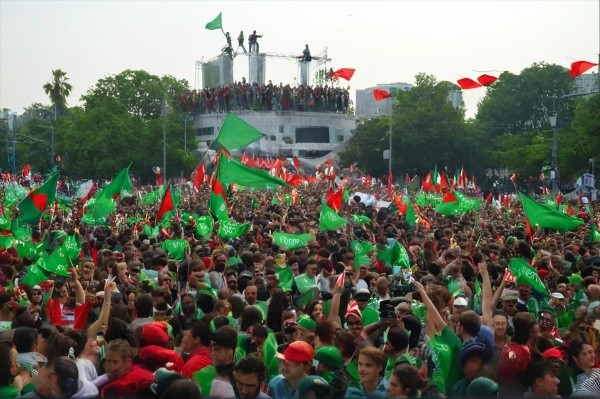Iran’s Plan to Strike Back Against the U.S.
Iran’s Military Preparations Following U.S. Attacks
Loading...

Hasina’s departure appears to have defused the high tension in Dhaka, where more deadly protests were feared on Monday.
Resignation and Departure
Bangladesh's Prime Minister, Sheikh Hasina, has resigned and fled the country following weeks of deadly demonstrations. The removal of Hasina on Monday followed weeks of deadly protests and appears to have averted the threat of further bloodshed. The focus now moves to who will control the South Asian country. Hasina's departure appears to have defused the high tension in Dhaka, where more deadly protests were feared on Monday. The resignation came after 300 people died in weeks of protest that the authorities sought to crush. A night of deadly violence on Sunday killed close to 100 and a curfew was called. Hasina boarded a military helicopter on Monday, as huge crowds ignored a national curfew to storm her palace in Dhaka.
Public Reaction and Celebration
The streets were patrolled by soldiers on Monday. However, protesters remained defiant and called for a march on Dhaka as crowds swelled in the capital. Huge numbers then stormed the prime minister’s palace, preventing Hasina from delivering a speech. By early afternoon, the mood on the street had turned to one of celebration after the news of the premier’s departure spread. Celebrations erupted among the crowds who had been on the streets of the capital, Dhaka, for another day of protests amid reports that Hasina had been airlifted from the prime minister's residence by military helicopter began to reach them. The message from the protesters is that whoever comes to power next "will now know that they won’t tolerate any kind of dictatorship or mismanagement and that the students will decide".
Military and Interim Government
In an address to the nation, army chief General Waker-Uz-Zaman announced that an interim government will now run Bangladesh and called for calm. The military has a "very tough job ahead," as stated by Irene Khan, a UN special rapporteur. The army chief urged citizens to keep trust in the army, which, he said, would return peace to the country. He also assured that justice would be served for every death and crime that occurred during the protests. The general added that representatives from all major political parties have accepted the invitation and committed to collaborating with the interim government.
Background and Context
Protests in the country started a month ago over a controversial government job quota scheme. The government responded by shutting down universities and using the police and military to crack down on protesters. Hasina imposed a nationwide curfew and cut off access to phones and the internet. The protests continued, and the country’s top court ruled that the highly contested quotas should be scaled back from 30 percent to 5 percent, with 3 percent for relatives of veterans. However, the demonstration movement had morphed into an unprecedented and nationwide uprising demanding the resignation of Hasina and accountability for those killed.
Uncertainty and Hope for Peace
Uncertainty looms over the future of Prime Minister Sheikh Hasina after Bangladesh witnessed one of its deadliest days. Tens of thousands of protesters have hit the streets and clashed with cops, demanding Hasina's resignation. The hope is that the transition would be peaceful and that there will be accountability for all the human rights violations that have taken place. The previous government had driven this country into despair, and there would be a lot of hard work to do to build it up, but most of all, it’s extremely important that the army respect human rights.
In summary, Bangladesh's Prime Minister Sheikh Hasina's resignation and departure amid widespread protests have led to the establishment of an interim government, with the hope for a peaceful transition and accountability for human rights violations.
Note: The information provided is based on the latest available reports and may be subject to change as the situation develops.
Editor
Iran’s Military Preparations Following U.S. Attacks
Troops remain in five strategic locations, raising fears of renewed tensions and long-term occupation.
Opposition forces have taken control of the capital after a significant offensive. Here is how it unravelled.
